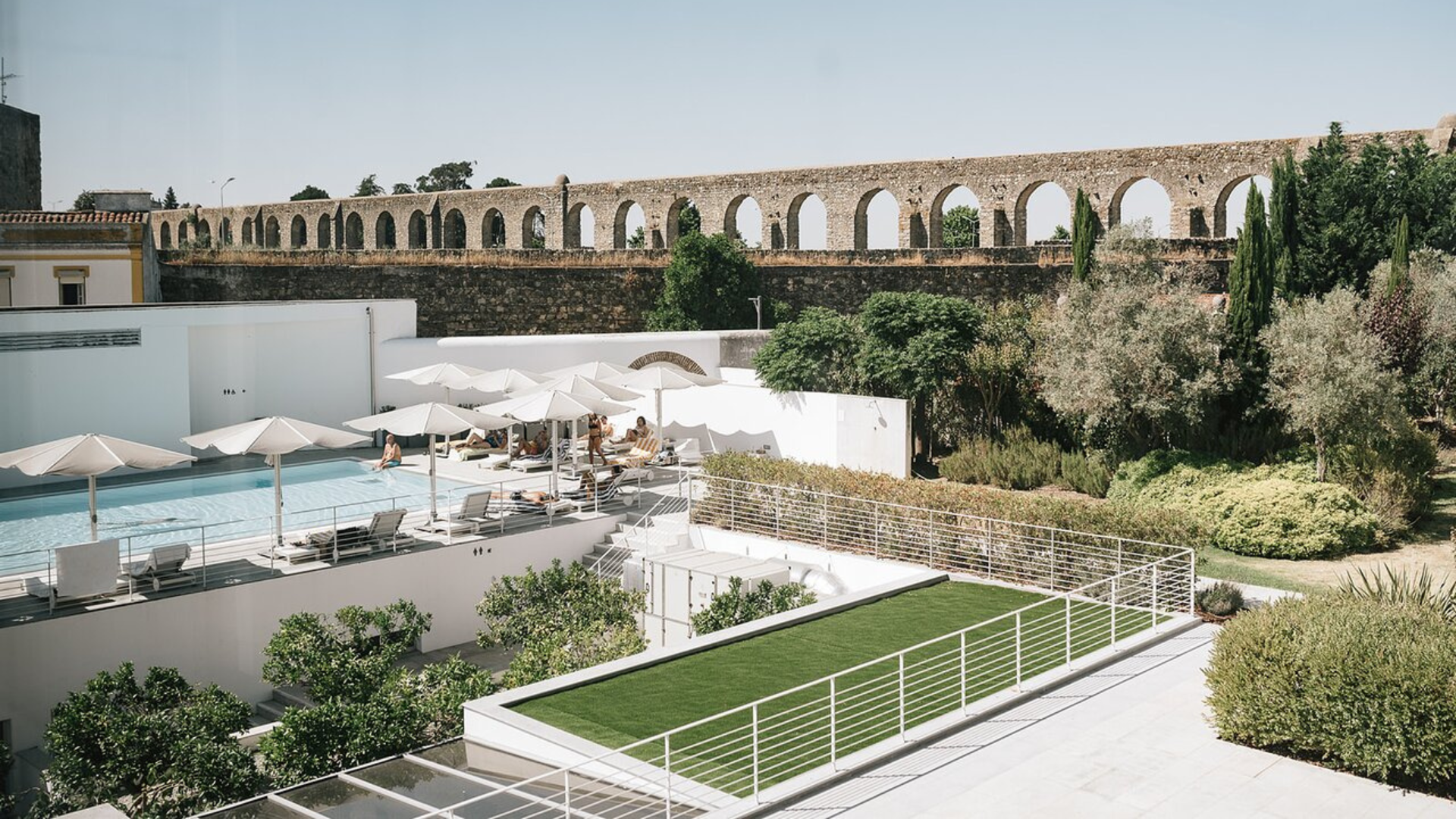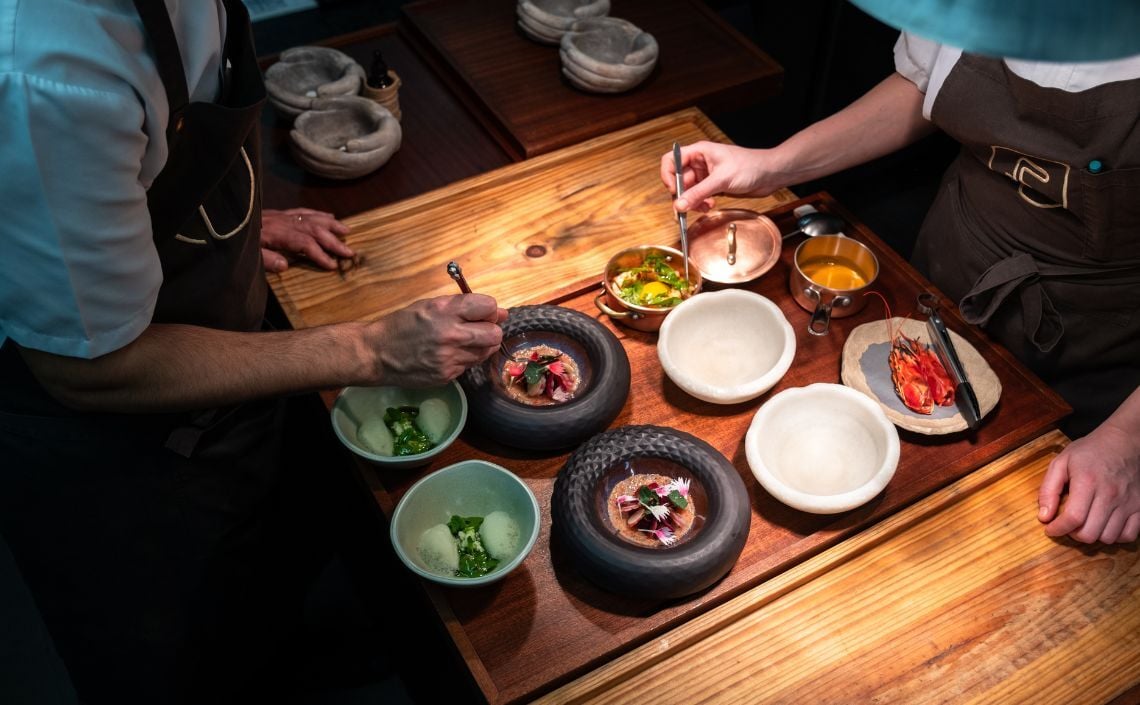The High Mountains of Portugal could be the name of a fantastic wine tour, or even better, a novel’s title…
But wait... it is! That is exactly the title of Yann Martel’s New Novel! 'Life of Pi' The Author talked with Travel+Leisure about Travel as a way to re-center yourself and about Portugal and the research he made in Lisbon and Trás-os-montes!
 image Credits: Emma Love
image Credits: Emma Love
Martel says this novel “meditates on loss, mysticism, travel, and chimpanzees. Divided into three parts, it begins with "Homeless," the story of a Portuguese man in the 1900s named Tomás who embarks on a journey to find a religious artifact. In the second section, "Homeward," a Portuguese pathologist, Eusebio Lozora, attempts to solve a medical mystery in 1938. "Home," the third section, is set in the 1980s, and follows a Canadian senator named Peter Tovy as he leaves the comforts of his home for Oklahoma and then Portugal as he deals with his wife's death.”
It’s interesting to understand the author’s point of view about Travel as a mechanism for coping with loss and grief: “Travel does a lot of things. Travel, in some ways, is a means of escape. That's the case for Peter. He flees Ottawa, where his wife died. Their apartment has marks of her death all over it. Generally, I don't think travel is a good escape long term. Demons tend to pursue you. But short term, it's a way of re-centering yourself.”
Traveling is good for us because it “tears you away from your mundane commitments. It allows you to take stock of things. You're not rushing to pay bills, take the kids to school. You suddenly have a lot of time. Because you're in a new territory, you tend to be more open. You're more open looking out, but therefore you can be more open looking in. Because you're seeing new things, it's quite thrilling. It can remind you how the world is a beautiful place, despite all the things you read in the newspaper and everything wrong. (…) It remains a stunning, thrilling place. You only really discover that if you travel. You can't get a sense of that if you just see it on a television screen. You have to see it physically.”
The novelist has been traveling his whole life, his parents were diplomats. They worked for the equivalent of the secretary of state in the US, the Canadian Foreign Service. As he grew older he kept traveling on his own because he understood and sensed the benefits of traveling in his life: “I think it influenced what I wrote. Life of Pi starts in India, and I've traveled in India. The High Mountains of Portugal is set in Portugal. Portugal is the first country I traveled on my own, as a 20-year-old, backpacking. That stayed with me. (…) It introduced me to authors and literature of a particular country that I might not have known about. It made me more cosmopolitan. What's great about travel is that it gives you things to compare your own experience with. (…) So travel allows you to compare and contrast your own life experience in a way that I think is very fruitful.”

Research in loco was important to help Martel visualize the novel settings, even if it meant “going back in time”: “In the case of Lisbon, I went there. I'd been there before and my partner is English, so every year for Christmas we usually go to England to visit her family. The last two times we went there, I took the opportunity to go to Portugal. I researched Lisbon. I was there this time just for the sake of the novel. I was researching where the uncle's house might be. As it turns out, the house is the residence of the Chinese ambassador in Lapa. I decided that was the type of house I wanted. They must have thought I was some sort of spy or something because I hung around for some hours. Then I took the route you'd take to get out of Lisbon. I found old maps to show me where Lisbon ended at that time. The very northeast, the high mountains of Portugal, are more mythologized. Trás-os-Montes, the province in question, which means "beyond the mountains" in Portuguese, turned into the high mountains of Portugal. I've explored the area extensively, but I used them to serve my literary purpose.” Because in his own words “I'm not a travel writer, but I've always found travel extraordinarily stimulating.”
Don’t we all dear Martel?
So, here goes a great travel tip: if you need a creative breakthrough, brilliant idea, or resolution, try visiting Portugal, where you can enjoy a glass of excellent Portuguese wine and the vibrant delicious flavors of Portuguese cuisine around incredibly inspiring people and culture! With Porto holding the flag of a renewing country, and at the center of a creative cultural revolution (as it has been mentioned very often in recent New York Times recent articles), there is genuine inspiration in the air, which you can feel and breathe!
If you are looking for a truly inspirational journey you know you can count on Wine Tourism in Portugal to help you plan it exactly like you need it!
Hey! We have just remembered, Sir Elton John is coming to Porto to perform in July in a cozy riverside Music Festival called Marés Vivas… if he stays a while maybe he will compose a new great hit!







